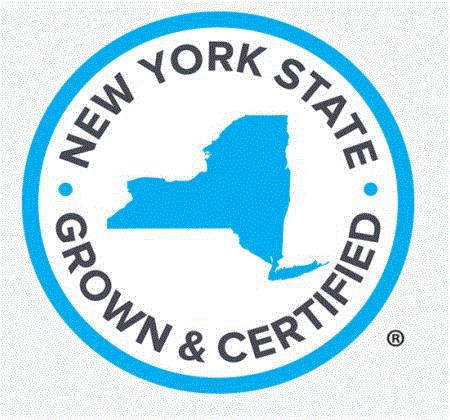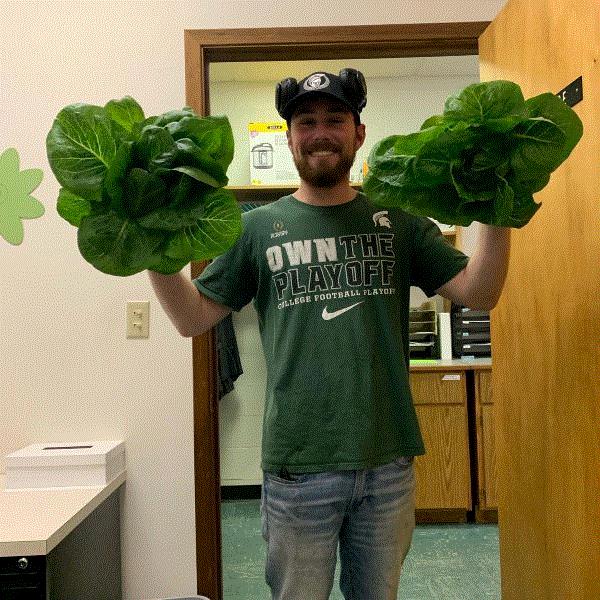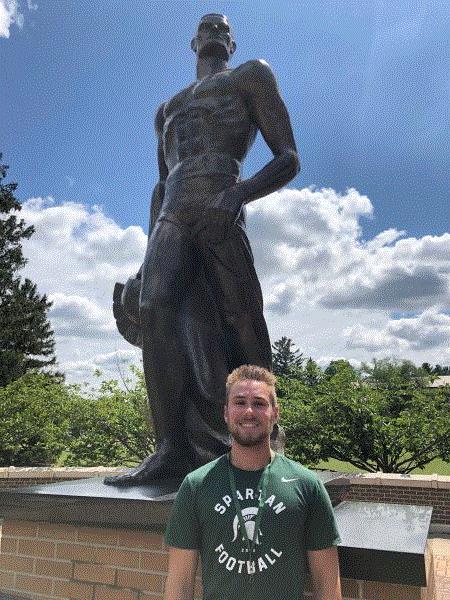Small Grower Solutions Seminar

For small growers and producers looking to increase the controls and automation in your operation, the Resource Innovation Institute (RII) will be hosting a seminar “Small grower solutions: When you can’t break the bank but still want to add controls + automation” this Wednesday, April 24 at 11:00 a.m. Eastern.
Webinar registration can be found here. Make sure to reserve your space so you do not miss out on any of the valuable information!
CEA Summit East Returns in October 2024
Co-hosted by the Virginia Tech-IALR CEA Innovation Center and Indoor Ag-Con, the 3rd Annual CEA Summit East will be hosted in Danville, Virginia October 1-2 as a “premier platform for industry collaboration and innovation.”

Seeking to attract growers, suppliers, educators, scientists and others in the CEA space, the event will also feature a lineup of keynote speakers, panel discussions, tabletop exhibits and research facility tours. Early bird registration at $495 for a Standard Pass and $395 for a Graduate Student Pass continues through August 23.
Texas A&M Entomologist Receives New Innovator in Food and Agriculture Research Award

Kiran Gadhave, Ph.D., an assistant professor of entomology with Texas A&M, was announced as one of 11 recipients of the New Innovator in Food and Agriculture Research Award for his work in developing next-generation pest management tools.
Presented by the Foundation for Food and Agriculture Research (FFAR), this award was created to help promote career advancement in promising new scientists making long-term career commitments in food and agriculture. The $500,000 award will go to funding Dr. Gadhave’s work in tomato spotted wilt virus and thrips with the potential of increasing the expanding specialty crop production in Texas.
For more information on Dr. Gadhave and his work, as well as the full list of winners, visit the FFAR website.
Funding Opportunities with the New York State Grown & Certified Program

Many states have some sort of certification program to help ensure consumers that they are purchasing a quality product grown in that state, and New York is no different. The New York State Grown & Certified (NYG&C) program was designed to increase consumer confidence in New York grown products while giving farmers and producers a competitive advantage.
Certified producers of products from dairy and eggs to wine, spirits and even Christmas trees can use the special seal to indicate that they adhere to a higher set of standards regarding food safety and environmental stewardship. Within the NYG&C also exists a series of funding opportunities, including the Infrastructure, Technology, Research and Development Grant Program. Application information will be coming soon, but will consider programs and projects that “assist agricultural entities in implementing projects that will invest in critical farm infrastructure, adopt state-of-the-art practices, purchase innovative technology or equipment, or conduct cutting edge research to aid in the development of new products to meet consumer demand.” Those interested can submit proposals through the New York State Consolidated Funding Application (CFA).

Finding Money Trees in Empty Office Buildings

Are you a company struggling to find a solution for your now empty office buildings (or a vertical farm in search of a location)? Well, we might have a solution for you. In a perspective piece released by the National Law Review, the authors discussed how developers have found residential conversions of vacant office buildings to be challenging and expensive and have instead turned to the more tax and eco-friendly alternative of building vertical farms.
Citing successful examples in Houston and Calgary, they noted the ease of conversion, zoning and economic benefits as primary motivations. For more information about how they suggest turning vacant spaces into “money trees,” the full article can be found HERE.
Student Profile—Nicholas Cooley, MSU

For any of you who are as big a fan of CEA grown strawberries as I am, today’s student profile will be a treat! Nicholas Cooley is a first year graduate student at MSU who is studying strawberry production with the goal of increasing yield and quality. Sit back, relax and read all about Nick and his work below.
1. Before we begin, can you tell all your (soon to be) fans who you are? Bonus points for all the things that make you interesting outside of your work.
My name is Nick, I am a first-year graduate student at Michigan State University with a B.S. in Economics and an A.A.S. in Indoor Agriculture from Northern Michigan University. I love the outdoors, hence my decision to study in the upper peninsula of Michigan, including hiking, swimming, tanning, camping, and every other “ing” you can think of outside. I come from a very musical household with a deep appreciation for music and have continued to play guitar and saxophone throughout school. My favorite band/artist is Led Zeppelin. Lastly, I am a huge Detroit sports fan with the Lions as my favorite team.
2. Can you tell us a bit about your research? Skip the Intro and Materials & Methods sections and just give us the conclusions.
My thesis is titled “Utilizing Controlled Environment Agriculture to Enhance the Yield and Flavor of Strawberries”. The main research idea is to find; 1) a higher yielding cultivar than the current industry standard ‘Albion’, and 2) an optimized day and night temperature. Over a 12-week period we tested two other cultivars against ‘Albion’ by subjecting them to five separate temperature treatments. So far, the data suggests there are more suitable cultivars for indoor production than ‘Albion’. I am currently on my second replication of this experiment and am testing three new cultivars.
3. While most are familiar with the elevator pitch, I find that I get more mileage out of my cocktail pitch, aka how would you describe a simplified version of what you do to someone new at a cocktail party?
I study horticulture, which is the business and science of plants. My research is focused on optimizing strawberry production while utilizing indoor growing technology.
 4. If you could recommend anything to a younger version of yourself, or any new student for that matter, what would it be?
4. If you could recommend anything to a younger version of yourself, or any new student for that matter, what would it be?
Don’t expect to go into college knowing exactly what you want to do in life. I started freshmen year listed with a business major, then crop and soil science with a focus in turfgrass management, which quickly turned into horticulture with a focus in landscape design. It wasn’t until my junior year when I locked in my studies as an economist/indoor grower. Even going further than that, it wasn’t until six months after I graduated that I decided I wanted to continue my education with a master’s. A lot of these changes were inspired by real life experiences, specifically jobs. It’s common to think you must know what you want to do after high school, however until you work that job, you never really know where your passion is.
5. What's next for you? How about if you could do anything in the world?
I believe there is a problem with America’s food system. Too many people have become completely reliant on supermarkets for sustenance. Most of our produce is grown thousands of miles away, and by the time it reaches us is lacking in flavor and nutrition. Therefore, after I graduate, I want to completely change the way people think about growing food. Utilizing hydroponic technology, I believe everyone has the tools to be self-sufficient and grow fruits and veggies from their home. However, there are many who have no clue what hydroponics is. On top of being an educator and advocate for growing your own food hydroponically, I would like to own and operate my own hydroponic farm, which would be a source of fresh, high-quality produce for my local community.
6. Finally and for my own benefit, what’s your favorite outdoor activity? (In honor of my close friend Frank, “these hands were made for typing, not being outdoors” is also an acceptable answer.)
Anything sports related, whether it’s a pickup game of basketball, flag football or even baseball.



Stay curious, ask questions and let me know how it goes at scampbell@ballpublishing.com.

Dr. Sean Campbell
Editor-at-Large
Inside Grower
This email received by 32,500 loyal readers!
Interested in advertising in Inside Grower? Contact Paul Black or Kim Brown and they'll show you how easy, effective and affordable it is.